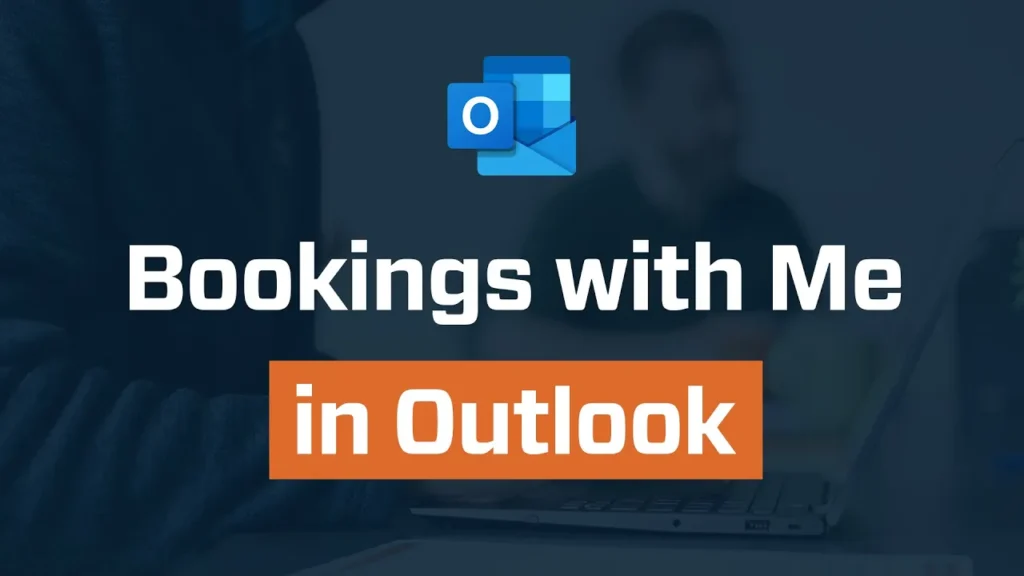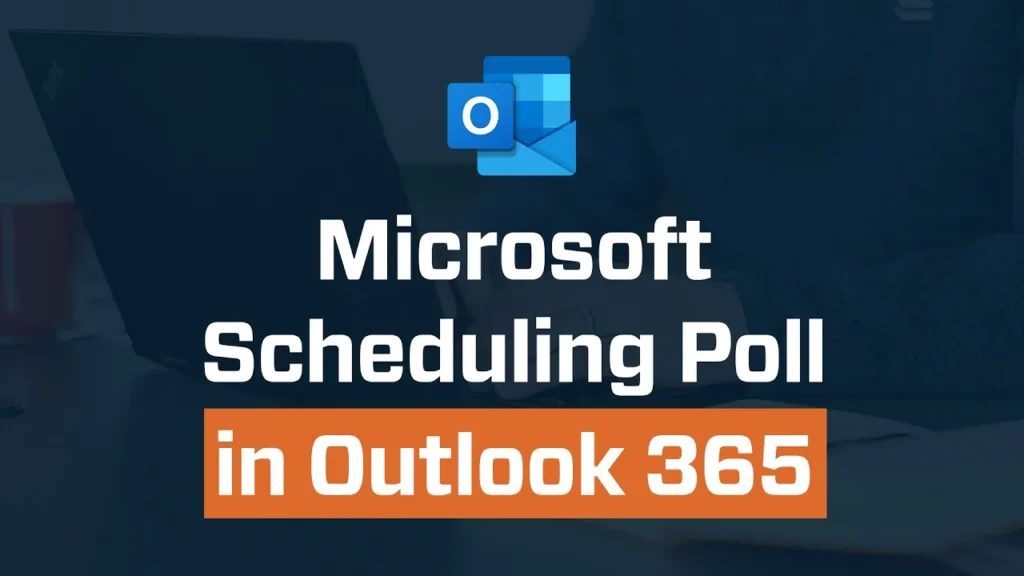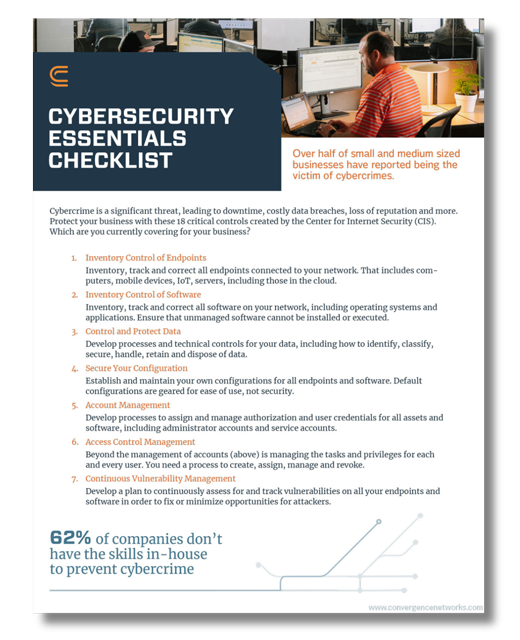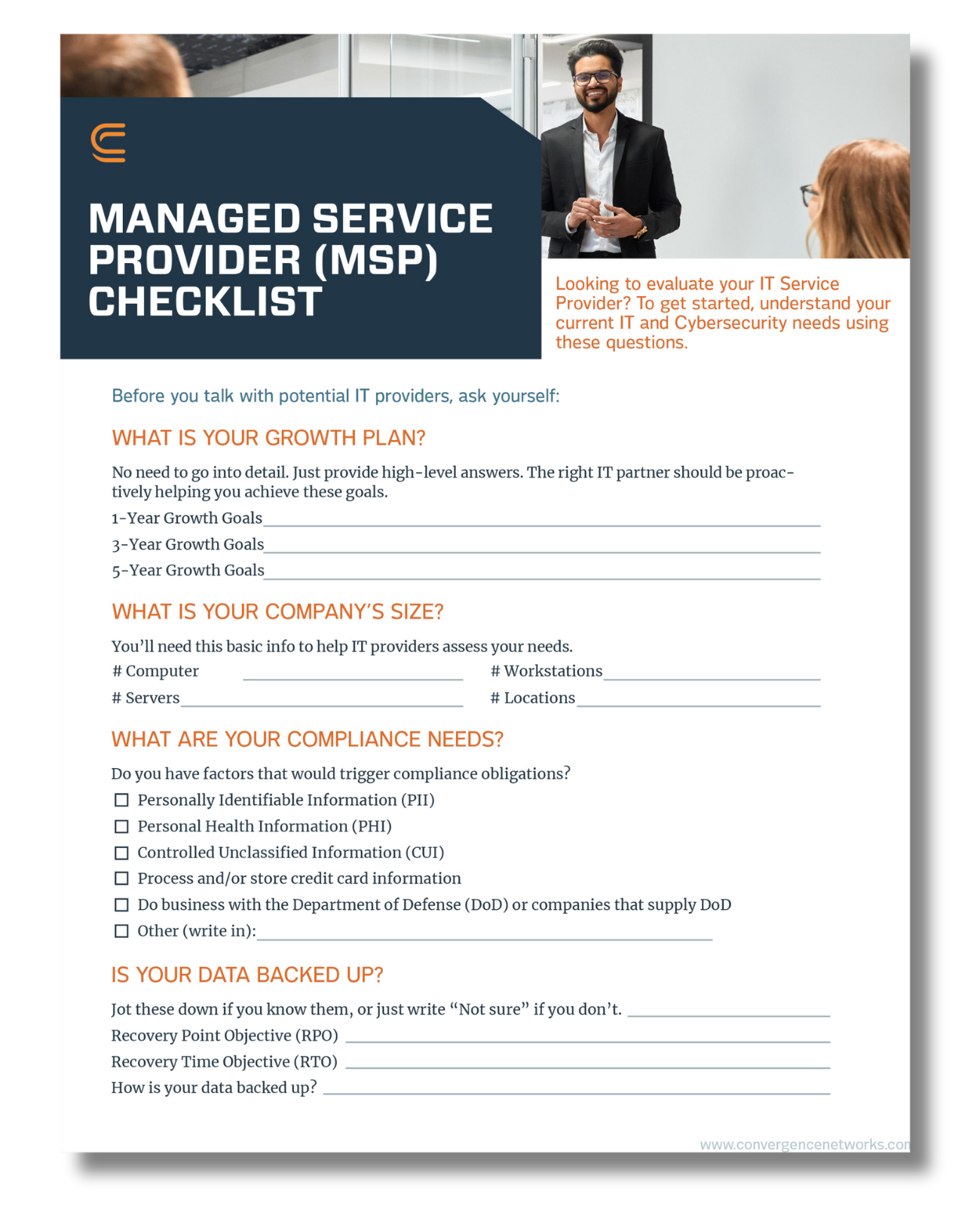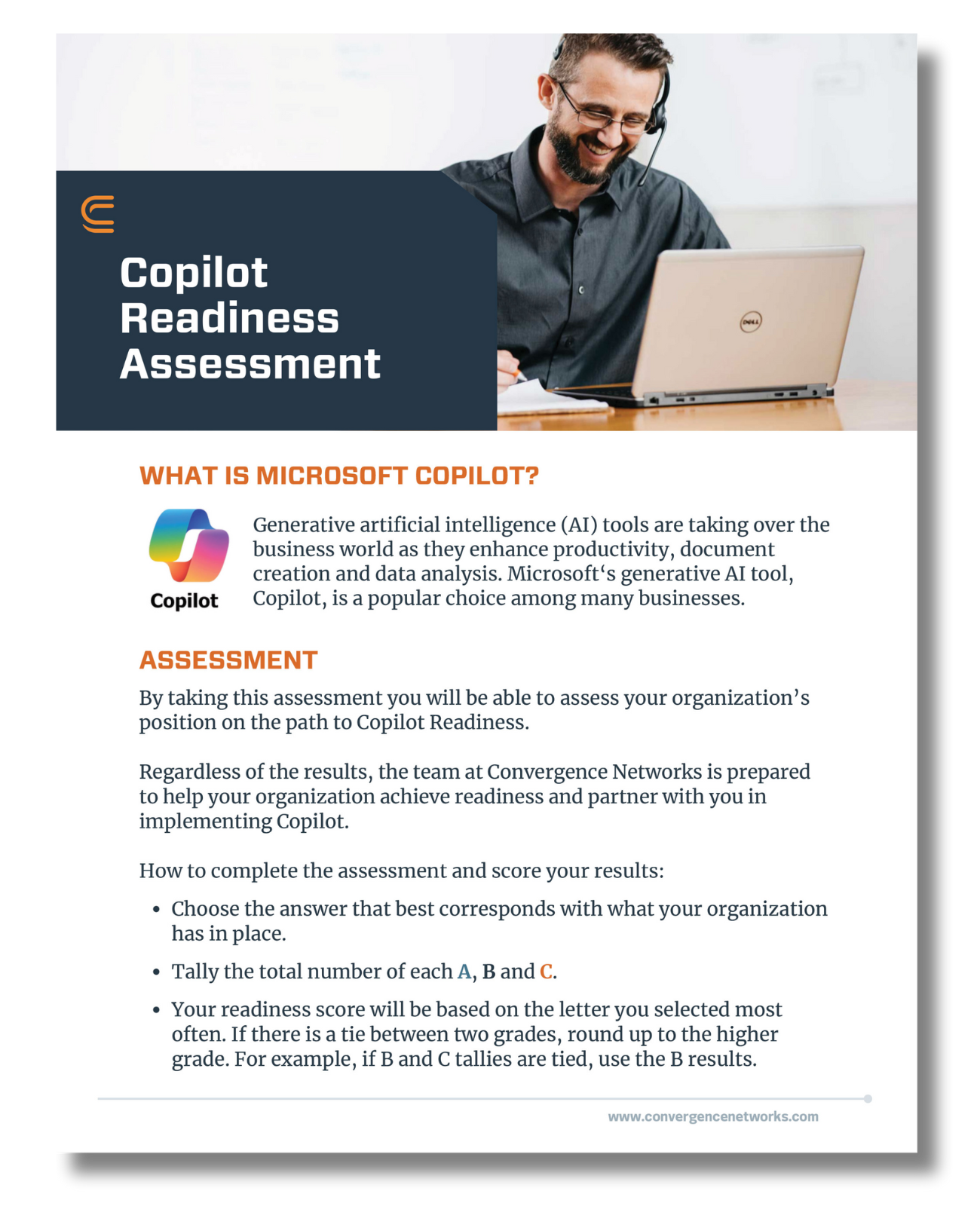Cloud computing advantages for businesses have been growing for years and that pace accelerated during the COVID pandemic. Even now that quarantines are in the past, remote and hybrid work has become the norm. Businesses need to provide users the ability to work from anywhere. Cloud migration reduces the costs of IT infrastructure and it is easily scalable, up or down, to meet changing needs.
What (and Where) Is the Cloud?
To many, the term cloud computing conjures up images of bits and bytes floating around somewhere in “cyberspace.” While those bits of data ARE in cyberspace, where you can access them from anywhere, they are also in a tangible place. Actually, they’re in many tangible places.
Cloud storage should not be confused with hosted data storage. With hosted solutions, all your data is stored on one server. Data in the cloud is not on one server or one computer. It is shared across multiple computers and, sometimes, multiple data centers.
That becomes an obvious advantage for the cloud — if there is a natural disaster or breach to the hosted server, you could lose EVERYTHING. That’s not likely with the cloud.
Cloud computing’s goal is to allow users to enjoy the benefits of secure online data storage without needing to know the technical details of how that is done. It simplifies cloud storage while it also cuts expenses, which helps the users focus on their core business, not on the IT of it.
5 Quick Takeaways for Cloud Computing Advantages for Businesses
- Cloud computing is more secure than any other protection device or software.
- It keeps your IT infrastructure expenses to a minimum.
- It truly is accessible from anywhere in the world.
- It is easier to maintain and easier to adjust up or down, when needed.
- It is stored on multiple servers, which means there is rarely a situation when ALL your data will be compromised.
Key Benefits of Cloud Computing for Businesses
There are even more cloud computing advantages for businesses:
- Flexibility. You can add or expand your technological infrastructure on an as-needed basis. Perhaps you need more storage next year or perhaps less. Do you know how many locations (i.e. computers in various cities) will be accessing your storage? With cloud solutions, you don’t need to know in advance. You can scale your data storage up or down depending on your business’s needs.
- Cheaper in the long run. You will no longer need a budget plan for purchasing servers and other infrastructure expenses. All you need to plan for is operational expenses of third party infrastructure, i.e. a cloud service provider. So, you will
- Only pay for what you use (usage-based pricing).
- Need fewer IT hours to implement and manage the storage.
- Independence. Since data is housed off-site and accessed via the internet, your users and staff can connect to it from anywhere.
- Easier, less expensive maintenance. All applications are stored in the cloud. That is considerably less expensive and much easier to maintain than having apps on each user’s computer. The added bonus is they are easily accessible when staff is traveling or using a different computer.
- Multi-servers. Because cloud computing spreads data across servers, the costs for server performance and maintenance are spread across that larger pool. That means:
- Centralized locations with lower costs.
- Peak-load capacity increases.
- Improvements for underutilized systems.
- Improved productivity. When staff members need to work, review or collaborate on the same data, it can be done simultaneously, rather than waiting for the document or data to be saved and emailed. Again, since the applications being used are on the cloud and not on employees’ computers, there is no need to spend money on individual application updates. You do it on the cloud for all.
- Business continuity. Because data is stored on multiple redundant sites, it is unlikely that your business will ever have a catastrophic loss of data and therefore business.
- High-level security. Cloud computing security is usually better than other traditional systems because service providers are able to devote more resources to solving security issues. They can tackle the threats and problems because that is their only business. So you can get back to concentrating on your business: selling your particular product or service to others.
Two Types of Cloud: Public vs. Private
Once you make the decision to migrate to the cloud, you will be offered public or private clouds. Public is more economical because the servers that are used to house your data will also be used by others to host their cloud data.
Don’t let that scare you. The data itself is still secure and not shared. Think of it as you would a bank vault. You own your own drawer or drawers in that vault and other customers own their own. You can’t get to theirs any more than they can get to yours.
Private clouds are designed for individual companies and dedicated to that company only. Not surprisingly, private cloud solutions are more expensive. No other company is on that server and that server is in one place only.
As you get larger, you might decide to go private. The beauty of cloud computing is your business can start out in a public cloud and move to a private cloud. As your business grows and you are able to expand, the clouds can expand with you.
Cloud Computing Is Absolutely Safe
Cloud computing is safer than self-hosted data options for two important reasons:
- All your data is stored in multiple places, therefore it is unlikely that you would lose ALL your data if disaster occurs, whether that be a natural disaster or a cyber attack.
- Because cloud services providers are totally vested in data security, they have a deep level of expertise, far more than most small or medium sized businesses can afford to hire in-house.
According to the Cloud Security Alliance, the top three threats in the cloud are:
- Insecure interfaces and APIs
- Data loss and leakage
- Hardware failure
As with any major company you hire for a business service, check the reputation of your potential cloud computing providers. Ask how they handle those three issues. Compare them to other providers before you make a decision. Or, have a quality managed service provider (MSP), such as Convergence Networks, do this due diligence for you.
Read the Fine Print
The security of your data is only as tight as your cloud computing provider states in its privacy policy. SO READ THE FINE PRINT. Know if they allow the sharing of your data.
Also, data distributed over a wider area or over a greater number of devices will require more complex security. Businesses that choose private cloud installations are motivated, in part, by a desire for more control over the infrastructure and information security of their cloud.
This is a complex technical area where a trusted MSP such as Convergence Networks can help with choosing a secure vendor and implementing cloud solutions in the best way for your business.
Quick Tips to Seamless Migration to the Cloud
- Don’t schedule your migration at your busiest time.
- Communicate your needs and preferences with your cloud migration provider.
- Be open to change.
Get Started With Cloud Computing
When moving to a cloud platform, you might not see the benefits immediately, but the right IT partner can monitor and adjust your choices to maximize your IT infrastructure investment over time.
It can be a seamless move. A comprehensive discovery stage helps tremendously. Sometimes it’s the little things that snag the move: It helps to be open to change and ready to do things a bit differently.
Contact us to learn how we can help you explore cloud computing advantages for businesses. We will scrutinize your business needs and suggest the right strategy for you.







